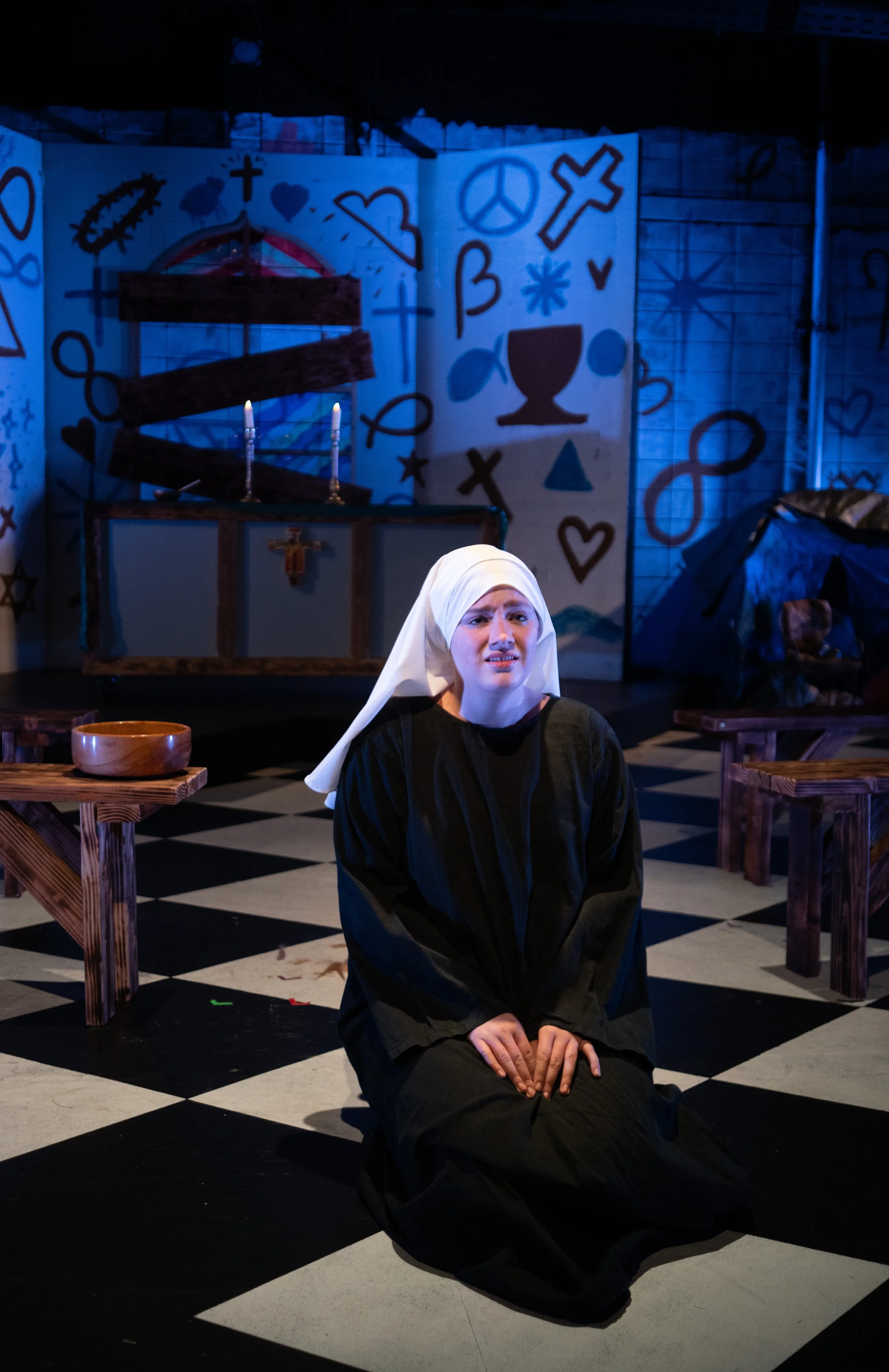Poor ClareChiara Atik’s moving and funny imagining of the life of St. Clare of Assisi, staged in Porter Theater
Director: Madeline Fanton
Assistant Director: Bo Bowman
Set and Lighting Designer: Jonathan Hicks
Costume Designer: Lynne Martens
Composer: Jack Oberto
Photos by Noah Nims
Director’s Note
Chiara Offreducio, the woman we know as Saint Clare, grew up in Assisi in the 13th century. She was devout from a young age, a love of God being instilled in her by her mother. But she was no submissive wallflower. At age 12 she was betrothed to an older man but refused to marry until age 18. After hearing Francis of Assisi preach as a teen, she abandoned the idea of marriage altogether and left home to become a nun. Her family pleaded with her to come home but she stood firm in her convictions. Clare was not satisfied with the Rule of Life (a document outlining the approved practices and standards of living for people in religious orders) given to her and the other women who had joined her in the cloister at San Damiano. Instead, she insisted on writing her own Rule which emphasized the virtue of holy poverty and the total non-possession of property. Her Rule was approved by the Pope just one day before her death, the first Rule ever written by a woman.
Poor Clare imagines what the life and spiritual transformation of Clare of Assisi might have been like…if she had the personality of a 21st century Beverly Hills teenager. The playwright, Chiara Atik, expertly weaves a 13th century story using 21st century language and humor. The play connects Clare’s spiritual awakening with a growing awareness of the poor and homeless in her community and when I read the play, I saw reflections of Santa Barbara: a place where we regularly encounter both extreme wealth and extreme poverty. Clare is a medieval noblewoman in Italy, but both the wealth she has and the poverty she encounters can be seen every day in Montecito, on State Street, on the Mesa.
My hope for this story is twofold. First, I hope that you thoroughly enjoy yourself. It is, afterall, quite a sweet and funny play. I also hope that by telling this story, our eyes, like Clare’s, would be opened and that once opened, would never again look away from the person with the cardboard sign at the Carrillo off-ramp, the person asleep on the bench outside the State Street Marshalls, the person asking for help outside the entrance to the Farmer’s Market. I know that much like “thoughts and prayers,” storytelling alone is not enough to help those who are suffering around us. But maybe Clare’s willingness to sacrifice everything will give us the courage to – at least – sacrifice something. As Clare begins to ask herself, so too the play asks each of us: what will you do with the money, influence, and privilege you have been given?





